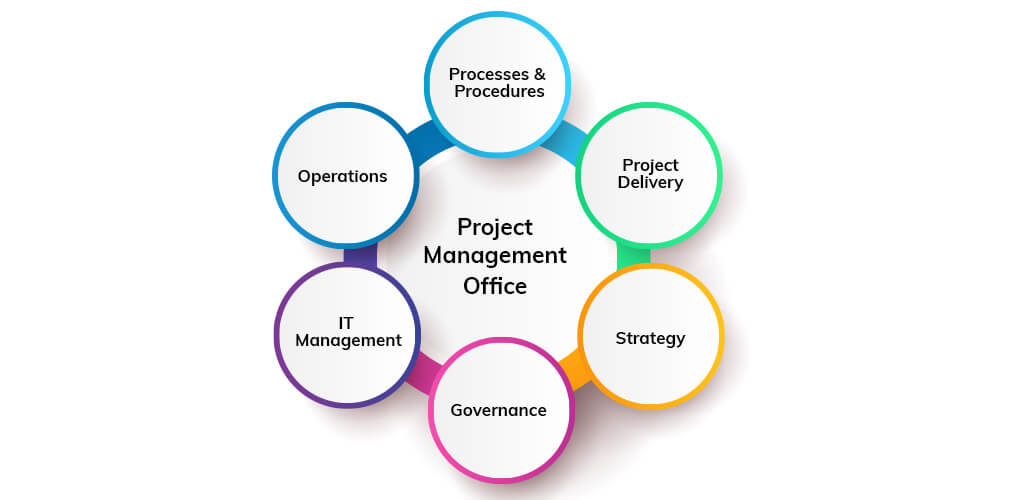Orangescrum Drives Business Success
Achieve Higher Productivity, Process & Profit using Orangescrum
Streamline Project Execution
-
 Project Management
Project Management
-
 Agile Project Management
Agile Project Management
Comprehensive Tools to
Manage Projects Effortlessly
Streamline tasks, boost collaboration, and exceed project goals
Agile Management Software to
Empower Team Agility
Streamline your Agile workflow, ensure transparency, and drive continuous improvement
TRY Orangescrum Self Hosted Project Management Software
What our customers say
Powerful Features to Drive
Business Growth
Everything your team needs to manage projects and collaborate with customers.
Pre-Built Templates to Standardize
Task Processes
- Product
Development - Content
Management - Bug
Tracking - Kanban
Template - Recruitment
Template
Project management - A quick guide for project managers
The end-to-end guide for project managers to be successful in project management, the best practices, tutorials, and resources all in one place!
Table of contents
- What is Project Management?
- What is Project?
- Why Project Management is Important for Any Business?
- What is the Project Management Approach or Types of Project Management
- The Components of Project Management
- The Stages of Project Management Or The Process of Project Management
- What are the Roles of Project Manager?
- What is Project Management Tool/software?
- Features of Project Management Software
- What is PMO
- What is OKR
- What is Project Management Methodology?
- What is Agile Project Methodology in Project Management?
- What is a Milestone in Project Management?
- How to achieve Project Milestones?
- What is the Life Cycle of Project Management?
- What is Project Template?
- How to Become a Successful Project Manager?
- What is the best project management to go for?
- Why Orangescrum is the Go-to Project Management Tool for any Business?
What is Project Management?
Project management stands for the process of organizing, planning, and managing the time, technique, and price for a particular project.
It simplifies the entire process by using the techniques, knowledge, and skills for enabling the project activities.
The discipline of project management consists of:
- Project management processes
- Project management phases
- Project management roles
- Project management tools
- Project management methodologies
What is Project?
A project is a series of tasks with a specific objective (or deliverable) to be completed within a set timeline, and upon completion, a product or service is created.
Projects are unique because they end, unlike other business functions that repeat or continue regularly.
Why Project Management is Important for Any Business?
Different businesses are always booming with different ideas. They always seem to have an endless source of creative juices and energy to make that dent in the universe.
Ideas need a lot of nurturing, analysis, planning, and organized execution to turn them into reality.
Businesses that are not using Project Management Methodology yet are likely to do more work while gaining less profit.
It happens because most of their time is wasted juggling tasks, not having visibility to the real-time project, task, and resource progress.
And these productive times are taken away from your core operations. The benefits are:
- Team Collaboration
- Smoother Scheduling & Planning
- Better Time Management
- Cost Reduction
- On-time Delivery
View details about project management
- 4 Stages of Project Management Process Improvement Plan
- The Best Project Management Checklist for Busy Project Managers
- Best Project Management Practices
- Best Project Management Tool List
- Common Project Management Mistakes by Startups
- Estimation & Planning in Agile Project Management
- Must Have Features in a Project Management Software
- How to Manage Resources with Agile Project Management
- How to Start Scrum Project Management in Orangescrum
- Why is Lessons Learnt Important for Successful Project Management
- How to Manage Risk in Project Management Process
- Project Management Instructions on Techniques for Mind Mapping
- 7 Project Checklist Points for Successful Project Management
- 7 Ways Project Management Can Help Your Growing Business
- Project Management Issues and Their Solution
What is the Project Management Approach or Types of Project Management
Many types of project management have been developed to meet the specific needs of certain industries or types of projects.
The type used depends on the preference of the project manager or the company whose project is being managed. Types are mainly included as:
Traditional Project Management Approach: Traditional or waterfall project management includes the caveat that each task needs to be completed before the next one starts. Steps are linear and progress flows in one direction—like a waterfall. Because of this, attention to task sequences and timelines are very important in this type of project management.
Agile Project Management Approach: Agile project management is an iterative process focused on the continuous monitoring and improvement of deliverables. At its core, high-quality deliverables are a result of providing customer value, team interactions, and adapting to current business circumstances.
Lean Project Management Approach: This methodology is all about avoiding waste, both of time and of resources. The principles of this methodology were gleaned from Japanese manufacturing practices.
The Components of Project Management
- Determining why the project is needed
- Determination of project requirements, determination of the quality of delivered products, evaluation of resources, and timing
- Preparation of business justification to justify investments
- provide, employment contract and financing
- Development and implementation of the project management plan
- Management and motivation of the team to implement the project
- Manage risks, issues, and changes in a project
- Monitoring progress in implementing the plan
- Manage your project budget
- Stay in touch with stakeholders and Project organization
The Stages of Project Management Or The Process of Project Management
The stages of any project management may depend on the project types. Still, when we break down each stage with actionable steps, it draws a structure to manage a project:
- Project Initiation
- Documentation,
- Team Building,
- Role of Project Manager
- Project PLanning
- Create Task List
- Assigning a Budget
- Risk Management Plan
- Communications Plan
- Make Project Schedule
- Assign Tasks
- Project Execution
- Task Management
- Schedule Management
- Cost Management
- Quality Management
- Change Management
- Procurement Management
- Resource Management
- Collaboration
- Project Monitoring
- Monitor the Process
- Reporting
- Project Closer
- Transfer Deliverables
- Confirm Completion
- Review Documentation
- Release Resources
- Do a Quality-check
Project management has a lot more to do than just keeping a check on the management triangle that is time, budget, and scope.
With the right approach in project management, a positive impact is developed, which influences more than the delivery of tasks and targets.
What are the Roles of Project Manager?
The Project Manager is a vital position as it assures that tasks are assigned as per plan and will provide worth and further opportunities to the business.
It ensures that the outcome of projects is aligned according to the imperative objectives of the company.
Project management provides leadership and guidance to projects. It removes hurdles and roadblocks by leading and inspiring the team to attain targets. The roles of project managers include
- Scope Management: Defining the work needed to complete the project activities
- Task Management: Planning tasks and defining their deliverables
- Resource Management: Using people, capital, materials and all other resources efficiently
- Team Management: Assembling and leading a team
- Schedule Management: Analyzing the duration of activities to create a project schedule. Once the execution phase begins, the project status must be monitored to update the schedule baseline
- Quality Management: Establishing a quality policy for the project’s deliverables and implementing quality assurance and quality control procedures
- Cost Management: Estimating costs and creating a budget
- Stakeholder Management: Satisfying stakeholders expectations and communicating with them throughout the project life cycle
- Risk management: Identifying, monitoring and minimizing project risk
- Status Reporting: Monitoring and tracking progress and performance by generating reports and other documentation
What is Project Management Tool/software?
The project management tool is a platform for managers to plan, observe, and report the glitch at projects as well as it lets to collaborate, allocate and track the spending hours on each stage of the project progress.
A strong project management tool empowers teams, so they can manage all the details crucial for a successful project.
Watch the video to see the project management tool in action:

Features of Project Management Software
To manage this workload more efficiently, managers need feature-rich project management software as a solution.
But it is also difficult to choose the right tool that could fulfill all your requirements as there are so many options available in the market.
To help you in choosing the best project management software, here is a list of some important features that your next project management software must have.
Task Management
It will be important for the project manager to manage the project tasks efficiently otherwise, the project will be at risk.
A robust task management feature offers you
- Complete authority over your project execution
- Increased transparency for your project team
- Greater alliance of the team with the common goal
- Hassle-free task collaboration
- Centralized platform for the entire team
- Time savings from creating manual status reports
- Better alignment with your installed & time tested processes
- Enhanced team coordination and spirit
- Motivated workforce with higher productivity
Resource Management
By managing the team members properly you prevent resource overload, employee burnout, undesired stress & anxiety.
The tactical benefits of resource management involve
- greater productivity
- timely completion of initiatives
- allocating resources to the most profitable ventures
- minimizing bench pool to zero
- prevent conflicts and chaos
- delivering services and support optimally
User Role Management
User role management and access control help to restrict unauthorized access to confidential project information.
The benefits are:
- Define Custom-Role and Roles like project manager, development manager, resource manager or senior developer or the stakeholders of your projects.
- Define custom access privileges for the roles.
- Add a Project-specific role to assign any individual for each project and define the access permission for the roles.
- Create and assign private tasks to your team.
Kanban Board
By applying this approach to project management, the workflow becomes transparent and visual.
- Entire work is divided into manageable tasks.
- Collects all the important information that is needed for a task.
- Can adjust to your team and process.
- Gives you a proper work status under one roof.
Report & Analysis
It also enables you to justify changes made to the project plan.
- Get the information of previous weeks logged-in users, no. of task created, no. of task updated, no. task closed, hours spent and storage used
- Visualize customized project status reports.
- Individual task status with each individual day’s task created and updated count
- List of previously accessed/enrolled projects and their current status
What is PMO
A project management office (abbreviated to PMO) is a group or department within a business, agency, or enterprise that defines and maintains standards for project management within the organization.
The PMO strives to standardize and introduce economies of repetition in the execution of projects. The PMO is the source of documentation, guidance, and metrics on the practice of project management and execution.

The Function of PMO:
- Performance Management
- Schedule Management
- Quality Management
- Communications Management
- Supplier Management
What is OKR
Objective and Key Results (OKR) is a simple process and formula that helps you to set and define goals. In organizations, it is the most important key to aligning simple day-to-day tasks with a specific organizational goal.
In project management, transparency and accountability are paramount for project success. In Agile project management methodology, it identifies certain project objectives along with key results to measure your performance.
What is Project Management Methodology?
Getting your team organized around a project is often easier said than done. Fortunately, following a project management methodology can help you organize your project into a structured, streamlined process.
It makes team collaboration more efficient and projects become better organized.
Project management experts agree that most projects benefit when a recognized methodology is followed.
While there are dozens of project management methods available, the majority of projects can be managed efficiently by following some popular project management methodologies below.
- Agile Methodology
- Scrum Methodology
- Waterfall methodology
What is Agile Project Methodology in Project Management?
The agile methodology is the process where a project splits up into several phases with different milestones. This process involves continuous collaboration with project stakeholders and constant improvement at every stage.
The projects managed usi ng this agile methodology approach are 28% more likely to be successful. The step to step guide to agile project management methodology:
- Understand the problem
- Assemble the right team
- Build an initial prototype
- Decide on the project boundaries
- Plan out major milestones using a roadmap
- Plan sprints
- Check in every day
- Review the sprint
- Plan the next sprint
- Completion and release
What is a Milestone in Project Management?
Project Milestones are achievements or the completion of a major phase in a project. They serve as checkpoints on your project timeline. Additionally, they help you easily identify the current stage of your project plus how far you are from completion.
Some factors worth considering while setting Project Milestones:
- Scope & Complexity
- Project Timing
- Frequency
- Accountability
How to achieve Project Milestones?
Resolve your queries and challenges while you’re working on your current milestones. Focusing on the past will only prevent you from progressing toward the end of the project journey. To achieve your project milestone, you need to:
- Set a Realistic Deadline
- Set a Timeframe
- Keep them Specific
- Keep a Backup
- Focus on the progress
What is the Life Cycle of Project Management?
We all know that Project is an endeavor that has a definite start and end. Thus, it makes it all the more important to have a well-defined life cycle in place. The life cycle is helpful in laying out transparent and time-bound entry and exit points throughout the project stages.
Timeboxing the stages ensures we stay on track and deliver with quality. One of the key objectives of any project is always having a balance among the triple constraints - Time, Cost & Quality. The better the balance, the better the chances of the project being successful.
A project management life cycle is consists of 5 phases:
- Project Initiation
- Project Planning
- Project Execution
- Project Monitoring and control
- Project Closure
What is Project Template?
As a Project Manager, you may come across long and complex yet identical projects. It takes a long time to create a complex product workflow, marketing campaign, employee onboarding etc. And creating the same content and workflow over and over again is a cumbersome affair and complete wastage of time and resources.
To get away from creating these repeated projects and tasks, we have Project Templates for you.
Project Templates enable you to replicate and reuse the structure and content of existing projects, including milestones and tasks with start date, end date, estimated hours to speed up new project creation and standardize workflow processes.
The basic idea behind project templates is to have a well-defined view, specific status workflow and corresponding task types, etc. to make project execution smooth.
Based on careful review, customer requests and best practices, you can start with the following 8 project templates.
How to Become a Successful Project Manager?
When a crisis occurs, a high-performing Project Manager should be ready to respond. Unfortunately, this is often not seen as a proactive move.
A good Project Manager prepares for the unexpected and takes action.
So, what makes efficient Project Managers stand out?
- Starting with the end in mind
- Tracking Time
- Managing Project Issues
- Understanding the Team
- Documenting everything
What is the best project management software to go for?
There are 100 different project management tools available, even some of which are suited for specific job-related tasks.
Though some tools have more specific capabilities, such as managing tasks, resource scheduling, or creating Gantt charts, most end-to-end project management software will be able to handle a range of other tasks, such as communication, creating reports, and management of requirements.
The criteria for finding the right project management tool can vary per business, and you might find a better comparison for choosing the best project management tool from this list for your business.
Overall, a good project management tool is focused on the capabilities that allow you to make progress in a project.
And people always prefer simpler software that offers better functionalities and usability.
Why Orangescrum is the Go-to Project Management Tool for any Business?
Orangescrum is a task, time, and project management software providing team and project managers an effective platform to perform their functions smoothly and effortlessly.
Basically, it merges all your tasks and projects and manages your resources from processes, people, and technology in time, without compromising the quality.
The significant features and the in-time service facilities make this tool more useful and the best of all.
Businesses that are not using this software generally do more work along with gaining less profit due to the waste of time on juggling tiny tasks.
Orangescrum is a perfect solution for those managers who want to see all their work, tasks and projects at a single place just to mention a few and without wasting much time.
This agile project management software enables all the project members to work closely with faster communication and smarter compatibilities.
For the managers who face problems in checking their team performance and organization goals, this platform is planned for them.
A short overview of Orangescrum features:
- Time management
- Task management
- Project management
- Gantt chart
- Kanban view
- Google Drive + Dropbox integration
- Collaboration

 Project Management
Project Management
 Agile Project Management
Agile Project Management



